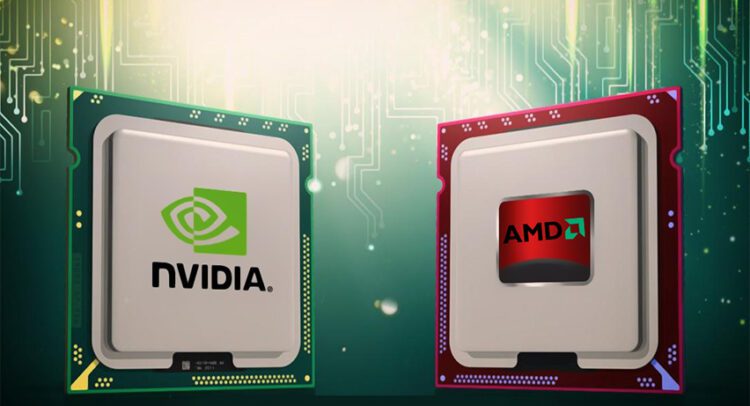- US officials are slowing down the issuance of licenses to chipmakers like Nvidia and AMD for large-scale AI accelerator shipments to the Middle East.
- A national security review of AI development in the region is underway, causing uncertainty about the duration and criteria for review.
- Concerns primarily revolve around high-volume sales to countries like the UAE and Saudi Arabia, amid an expanded Commerce Department rule on chip export restrictions.
- This delay aims to allow Washington time to develop a comprehensive strategy for overseas deployment of advanced chips, including negotiations on facility management and security.
- Meanwhile, the market reacts with fluctuations in share prices for affected companies, highlighting investor sensitivity to regulatory developments.
Main AI News:
Recent developments reveal a slowdown in the issuance of licenses to prominent chipmakers like Nvidia Corp. and Advanced Micro Devices Inc. for substantial AI accelerator shipments to the Middle East. This shift arises as US officials embark on a comprehensive national security evaluation of AI advancement within the region.
The duration of this assessment remains uncertain, accompanied by ambiguity regarding the threshold defining a “large shipment.” Sources, who prefer to remain anonymous due to the confidential nature of the discussions, highlight officials’ heightened scrutiny, especially concerning high-volume sales. Notably, countries such as the United Arab Emirates and Saudi Arabia are actively seeking to import significant quantities of these chips crucial for AI data centers.
AI accelerators, notably pioneered by Nvidia, play a pivotal role in processing the vast volumes of data essential for developing AI applications like chatbots. Consequently, they have emerged as indispensable components for enterprises and governments striving to establish robust AI infrastructures.
In October, the Commerce Department expanded chip export restrictions, initially focused on China and select adversaries, to encompass a considerable portion of the Middle East. Consequently, companies now require special licenses from the US government to export cutting-edge semiconductors and chipmaking tools to countries like Saudi Arabia and the UAE.
Reports suggest that US officials have either deferred or not responded to license applications under this regulation in recent weeks, affecting potential sales to customers in the UAE, Saudi Arabia, and Qatar. Notable chipmakers like Intel Corp. and startup Cerebras Systems Inc., alongside Nvidia and AMD, are impacted by these delays. However, all four companies declined to provide comments on the matter.
This pause aims to afford Washington the necessary time to formulate a comprehensive strategy governing the deployment of advanced chips overseas. Key considerations include negotiating the management and security protocols for facilities utilized in training AI models.
Following reports of these license reviews, Nvidia witnessed a decline in share value, reaching a daily low. Conversely, AMD experienced marginal gains, reflecting investor sentiment amid these developments.
The Commerce Department underscored its commitment to national security, affirming stringent due diligence in evaluating license applications concerning cutting-edge technologies. Additionally, ongoing discussions with Middle Eastern partners seek to ensure the safeguarding of the technological ecosystem.
Thea Kendler, overseeing export administration at the Commerce Department, recently engaged in discussions across key Middle Eastern nations, signaling progress in collaborative efforts to address semiconductor export controls, particularly in the UAE.
Amidst these deliberations, concerns persist regarding the potential for Chinese entities, constrained from accessing advanced American technology, to circumvent restrictions via Middle Eastern data centers. This aligns with broader US efforts to prevent the proliferation of advanced semiconductors and manufacturing equipment to China, driven by national security apprehensions.
Recognizing the burgeoning importance of AI in diversifying their economies, the UAE and Saudi Arabia are actively positioning themselves as regional leaders in AI innovation. Both nations regard the US as a pivotal partner in this endeavor, pledging to adhere to US directives to maintain separation from Chinese supply chains.
Meanwhile, Saudi Arabia’s recent collaboration with China’s Lenovo Group Ltd., involving the establishment of a research and development center in Riyadh, underscores evolving global partnerships in the AI domain.
The ability to secure export licenses assumes significance in negotiations surrounding Microsoft Corp.’s substantial investment in Abu Dhabi-based AI firm G42. This partnership, valued at $1.5 billion, materialized following extensive dialogues with US officials, emphasizing the intricate interplay between geopolitical dynamics and technological investments in the AI landscape.
Conclusion:
The US’s decision to delay AI chip exports to the Middle East signifies a nuanced approach to balancing technological advancement with national security concerns. This regulatory pause underscores the increasing scrutiny surrounding the global semiconductor supply chain, influencing market dynamics and investor sentiment. Companies navigating this landscape must adapt to evolving regulatory frameworks while maintaining strategic partnerships to mitigate potential disruptions in international markets.

